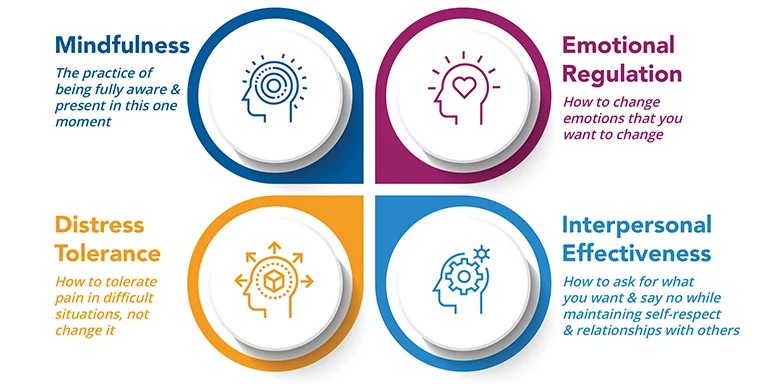
A Beginner’s Guide to Dialectical Behaviour Therapy (DBT) and How You Can Learn More
Have you ever found yourself overwhelmed by intense emotions? Do you struggle to navigate turbulent relationships or cope with distressing situations? If so, you’re not alone. In a world that often feels chaotic, many of us are seeking effective tools to manage our emotional worlds. Enter Dialectical Behaviour Therapy (DBT), a therapeutic approach that has been gaining recognition for its practical, skills-based method for building a life worth living.
For those new to the concept, DBT can sound complex. But at its core, it’s a form of talk therapy designed to help people who experience emotions very intensely. Originally developed to treat individuals with Borderline Personality Disorder (BPD), its benefits have proven to be far-reaching, helping those with a wide range of mental health challenges, including depression, anxiety, eating disorders, and substance use disorders.
The term “dialectical” refers to the idea of integrating opposites. DBT is founded on the principle of balancing acceptance and change. This means that while the therapy validates your experiences and emotions, it also equips you with the tools to make positive changes.
The Four Pillars of DBT: Building Your Skills
DBT is structured around four key modules, each teaching a specific set of skills to help you better manage your thoughts, emotions, and relationships.
1. Mindfulness: This is the foundation of DBT. It involves learning to be present in the moment and observing your thoughts and feelings without judgment. Mindfulness skills help you slow down and focus on the here and now, which can be incredibly grounding when you’re feeling overwhelmed.
2. Distress Tolerance: Life is full of challenges, and this module teaches you how to navigate a crisis without making the situation worse. You’ll learn healthy coping mechanisms to get through difficult moments, such as self-soothing and distraction techniques.
3. Emotion Regulation: For those who experience intense emotions, this module is a game-changer. It provides you with the tools to understand, manage, and change your emotions healthily. This can help reduce your emotional vulnerability and increase positive emotional experiences.
4. Interpersonal Effectiveness: Strong, healthy relationships are crucial for our well-being. This module focuses on communication skills, teaching you how to assert your needs, set boundaries, and navigate conflicts constructively. These skills are invaluable for building and maintaining positive connections with others.
Who Can Benefit from DBT?
While initially created for individuals with BPD, DBT has proven to be effective for a wide array of people. You might find DBT helpful if you:
Struggle with intense and overwhelming emotions.
Engage in self-destructive behaviours.
Have difficulty in your relationships.
Experience chronic mental health conditions like depression, anxiety, or bipolar disorder.
Are you looking for practical skills to manage life’s stressors better?
Essentially, anyone who wants to improve their emotional regulation and build a more fulfilling life can benefit from the skills taught in DBT.
Your Next Step: An Introduction to DBT with ICHAS
If you’re intrigued by the potential of DBT and are looking for a structured way to learn more, the Certificate in Dialectical Behaviour Therapy at the Irish College of Humanities and Applied Sciences (ICHAS) is an excellent starting point.
This course is specifically designed for those who are new to DBT and want to gain a solid understanding of its core principles and skills. It offers a comprehensive introduction to the four modules, providing you with the foundational knowledge to begin applying these transformative skills in your own life or to help others. The program is ideal for healthcare and mental health professionals, as well as anyone with a keen interest in developing their emotional intelligence.
By enrolling in this course, you will not only learn the theory behind DBT but also gain practical skills to help regulate emotions, manage distress, and improve relationships.






















